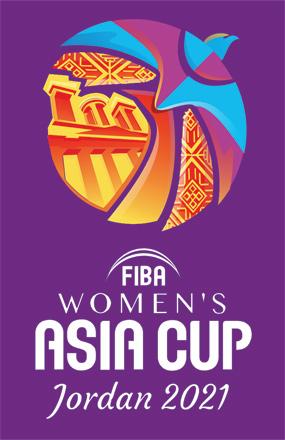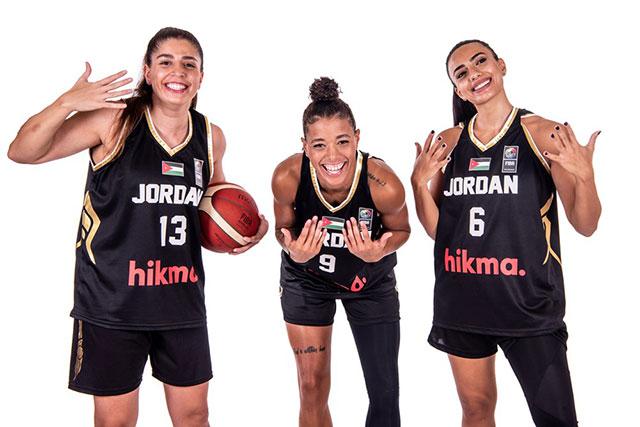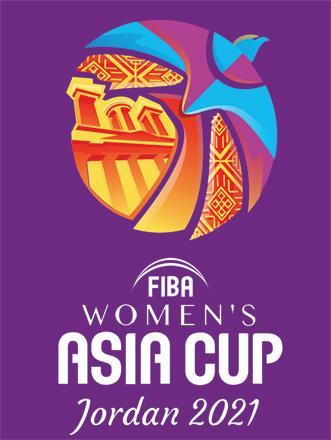You are here
Amman hosts FIBA Women’s Asia Cup Division B
By Aline Bannayan - Nov 07,2021 - Last updated at Nov 07,2021

AMMAN — The FIBA Women’s Asia Cup 2021 (Division B) — tips off in Amman with six teams competing from November 7-13 with hosts Jordan playing in Group B alongside Kazakhstan and Indonesia, while Group A includes Iran, Lebanon, Syria.
Jordan plays Indonesia at 7pm on November 8 and Kazakhstan on November 9. The top team from each group will automatically move to the semis while the second and third in each group play a knockout round on November 10. The losers will then play for 5-6 spots on November 12, while the winners advance to the semis. The top team in the tournament will be promoted to Division A. Missing the event are Sri Lanka, Hong Kong, Malaysia, Thailand and Singapore.
The national team just ended a training camp in Turkey and this week signed a pro player to join the lineup. The preparations and support are quite different from when the team first took part in 1995.
Jordan is back to the competition after an absence of 26 years when the squad took part in Shizuoka, Japan, in circumstances that are very different from this day and age. The players, not only had a short time to train and play Asian teams, but they actually fundraised themselves with team managers to cover the trip’s expenses.
When the team was short of its last JD5,000 needed to secure the flight tickets, an article published in The Jordan Times caught HRH Prince Hassan’s attention, who immediately called team managers and covered the missing funds needed. That historic participation was Jordan’s first ever Asian appearance for a women’s sports team, and the team won one match beating Indonesia 58-55 to finish 11th.
“Being back in FIBA Women’s Asia Cup is long overdue, but I hope Jordan becomes a regular participant,” Fadi Sabbah, who was the team coach in 1995 told The Jordan Times. “I wish the new squad all the best, and wish they had the chance to see our 1995 squad in action. They had a never-say-die attitude, relentless defence and a magical team spirit,” he noted, adding, “the players will be in the arena cheering on their successors”.
Rana Husseini, the 1995 team’s captain underlined “hosting the championship in Jordan will give our players a big boost and inspire the younger generations”.
“The obstacles were many and I remember arriving on the day of our first game because of last minute travel arrangements, but managing to play in a major international championship and raise Jordan’s flag is a dream for any player and I am hopeful the current team will carry that flag forward,” she added.
Hala Muheisen, the team’s fiery playmaker reminisced on the difficulties back then. “I was so proud and happy to play in Asia, as the obstacles were immense. I’m happy for the new generation, but I hope official support does not remain haphazard,” she said.
Teammate Hind Al Ghouri added: “Memories on an off the court is what binds us. Asian teams did not know women’s basketball existed in Jordan. I remember Japanese fans cheering for us after each match. It’s something I’m proud to discuss with my children now.”
The current team captain is no less passionate. At 34, the mothers of two and career banker, Dana Fadda’s basketball career demonstrates how overdue the Jordanian participation is.
Fadda started playing in 2001 for the Orthodox Club and it will only be now that she will represent Jordan on the Asian scene. She played for Jordan in Arab championships and became the first basketball player to play pro in Bahrain before moving to Fuheis Club. Fadda was MVP and best rebounder and all star player in the last league.
Comparing notes on the base of the game, and the status of women’s basketball in the country, players note there were 4 clubs playing the game when the 1995 national squad was regrouped, and now it’s 2-3 clubs. That leaves little room to promote the game and have a bigger base to choose from for the national squad.
In an interview with The Jordan Times, Fadda underlined that “individual effort and love of the game is what kept many players going”. Noting the team has a big responsibility on its shoulders, she added: “We are mentally ready, but would have hoped since Division B was scheduled and set to be held in Amman that the team regrouped far longer ago.”
“My hope is that there will be a sustained effort to keep the women’s team and take it to another competitive level,” she added.
Asian basketball teams are classified to two divisions: FIBA Women’s Asia Cup (Division A) was recently held in Amman with the top four teams qualifying to the 2022 FIBA Women’s Basketball World Cup in Australia. A major tournament with leading teams from the continent participating, the tournament marked the first time the FIBA Women’s Asia Cup 2021 Division A is held in an Arab country.
Reigning holders Japan made it past China in the final of the 29th edition of the tournament. Australia scored a major upset over South Korea in the battle for third place. New Zealand took 5th place after beating Chinese Taipei and the Philippines secured 7th spot after narrowly overcoming India. The latter was relegated to Division B of the 2023 FIBA Asia Cup after putting up a big fight for their spot in Division A.
The same eight teams from the last Division A edition had qualified to this years’ tournament, listed by their final position. Division B was not held in 2019.
The FIBA Women’s Asia Cup is an international basketball tournament which takes place every two years for national teams from FIBA Asia region. It was known as the Asian Basketball Confederation (ABC) Championship until 2001, and the FIBA Asia Women’s Championship until 2015. Japan is Division A titleholders and 5 time winners, South Korea 12 time winners, China 11 time winners.
Among Arab teams, Division B saw Syria played in 1986 (finishing 9th), Jordan in 1995 (finishing 11th) and Lebanon in 2001 (finishing 13th).
In addition to the Women’s Asia Cup Divisions A & B, Jordan will again host the FIBA Asia U-18 Championship for Women in 2022, which qualifies the winners to the FIBA U-19 Women’s Basketball World Cup.
Related Articles
AMMAN — It’s down to the final four, and Jordan has a shot at the top spot.On Friday, the hosts will play the semis of the FIBA Women's Asia
AMMAN — The 2021 FIBA Women’s Asia Cup (Division A) — the 29th edition of the tournament, tips off in Amman on Monday, the first time it is
AMMAN — Jordan is ready to host the FIBA U16 Women’s Asian Championship Division B which tips off at the Prince Hamzah Arena from June 24-30

















